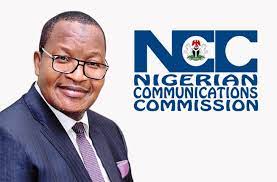The Nigerian Communications Commission (NCC) has issued a directive to all telecommunications operators in Nigeria to implement full network barring on all phone lines that are not linked with the national identification numbers (NINs) of the subscribers.
The directive, which was released on Monday, states that the operators must bar all phone lines for which the subscribers have not submitted their NINs by February 28, 2024. The directive also states that the operators must bar all phone lines that are linked to unverified NINs by March 29, 2024, if there are five or more lines linked to such NINs or by April 15, 2024, if there are less than five lines linked to such NINs.
The directive further states that all affected subscribers must undergo verification of their biometrics and biodata before their lines are unbarred. The verification process involves validating the NIN with the National Identity Management Commission (NIMC) and matching the subscriber’s NIN records with the SIM registration information.
Read also: NCC Endorses Meta’s Ambitious 2Africa Cable Project in Nigeria
A follow-up to the one-way barring of phone lines
The directive is a follow-up to the previous directive issued by the NCC on April 4, 2022, which required the operators to restrict outgoing calls (one-way barring) for subscribers whose lines are not linked with NINs. The one-way barring was meant to be a temporary measure to encourage the subscribers to link their NINs to their SIMs and avoid service disruption.
The NCC, which is the regulatory body for the telecommunications industry in Nigeria, initiated the SIM/NIN harmonization program in December 2020, in collaboration with the Federal Government. The program aims to ensure proper subscriber identification and security, as well as to comply with the NIMC Act of 2007, which mandates every Nigerian citizen and resident to enroll for a NIN.
A potential impact on the telecom operators and subscribers
The SIM/NIN harmonization program has had a significant impact on the telecom operators and subscribers in Nigeria. According to the NCC, the operators had lost over 20 million subscriptions as some subscribers abandoned their lines due to the NIN requirement. However, the operators had also recovered some of the loss as more Nigerians registered for NIN, bringing the active subscriptions across the four mobile networks to over 200 million as of August 2021.
However, with the new directive, the operators may face another challenge, as millions of lines that are currently restricted may be fully barred starting from February 2022. This may affect the revenue and market share of the operators, as well as the quality and availability of service for the subscribers.
The NCC has urged the operators and subscribers to comply with the directive and complete the SIM/NIN linkage process as soon as possible. The NCC has also provided various channels and platforms for the subscribers to submit and verify their NINs, such as USSD codes, mobile apps, websites, and customer care centers.
What is the penalty for non-compliance with the directive?
According to the official website of the National Identity Management Commission (NIMC), the penalty for non-compliance with the SIM/NIN linkage directive is the blocking of phone lines that are not linked with NINs. This means that the affected subscribers will not be able to make or receive calls, send or receive messages, or access the Internet on their phones.
The NIMC has advised the subscribers to comply with the directive and complete the SIM/NIN linkage process as soon as possible, to avoid service disruption and inconvenience. The NIMC has also provided various channels and platforms for the subscribers to submit and verify their NINs, such as USSD codes, mobile apps, websites, and customer care centers.




